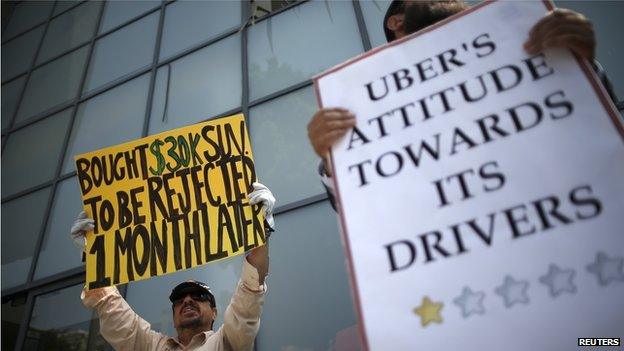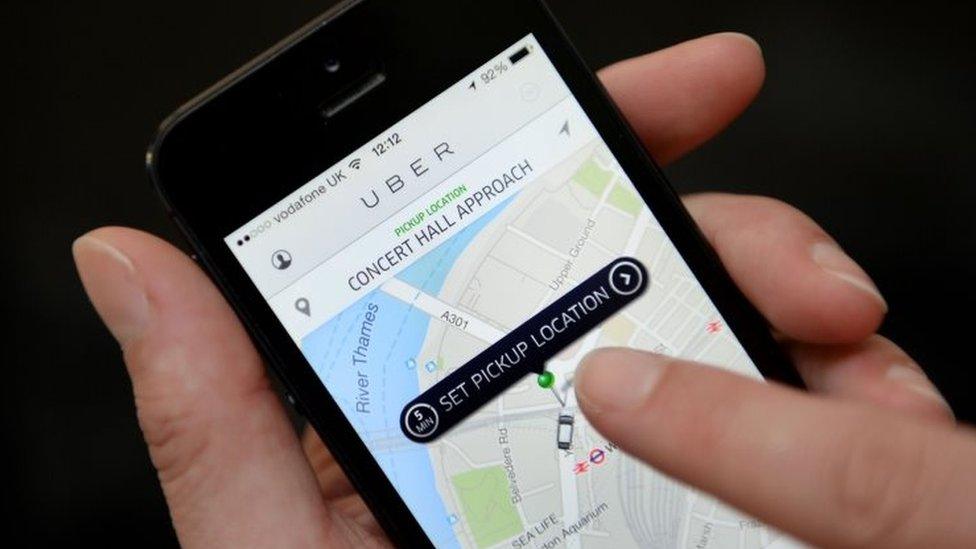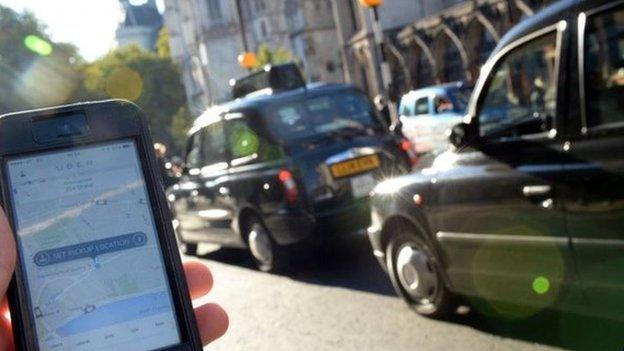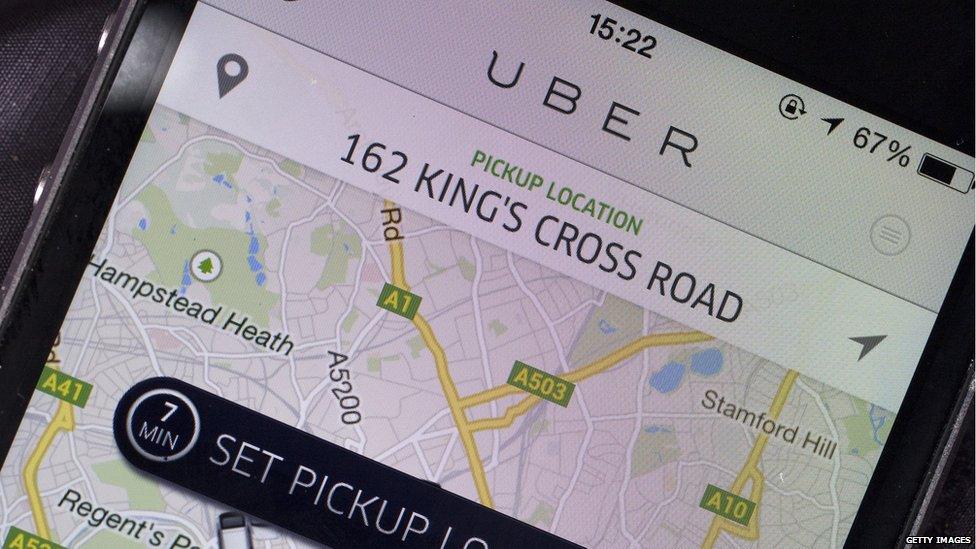Uber settles over employee status row
- Published

Uber has been subject to protests from drivers
Taxi-hailing firm Uber has agreed to pay up to $100m (£70m) to settle a US legal action over whether drivers should be classified as employees or independent contractors.
Drivers had argued that they should be classed as employees, entitling them to claim expenses and other rights.
The decision to settle will come as a relief to Uber and others in the on-demand economy who use contractors.
But critics will be disappointed the case is not going to trial.
In a blog post, external, Uber boss Travis Kalanick said he was pleased with the settlement, which means drivers will continue to be independent contractors.
"Drivers value their independence - the freedom to push a button rather than punch a clock, to use Uber and Lyft simultaneously, to drive most of the week or for just a few hours," he said.
But he acknowledged: "We haven't always done a good job working with drivers.
"It's time to change."
Grievances
Uber has agreed to some changes in its business practices, including a better policy explaining why it was terminating drivers' contracts.
It also said that it would help create a drivers' association in California and Massachusetts - where the actions were brought - that would act in a similar way to a union and be able to bring grievances to management's attention.
Some 450,000 drivers use the Uber app each month in the US, according to Uber.
One of the lawyers for the drivers, Shannon Liss-Riordan, said there would be disappointment that the case was not now going to trial but added that there was a "significant risk of losing" if the case moved forward.
This is partly because a federal appeals court had recently agreed to review an order allowing Uber drivers to sue as a group.
The settlement does not prevent future court, or US labour bodies, classing Uber drivers as employees, Ms Liss-Riordan added.
Out of the $100m proposed payment, $84m will go to drivers in the first instance. Uber has agreed to a second payment of $16m if the firm goes public and its valuation increases one and a half times from its December 2015 valuation within the first year.
The deal must now be approved by US District Judge Edward Chen in San Francisco.
- Published20 January 2016

- Published16 October 2015

- Published6 November 2015
